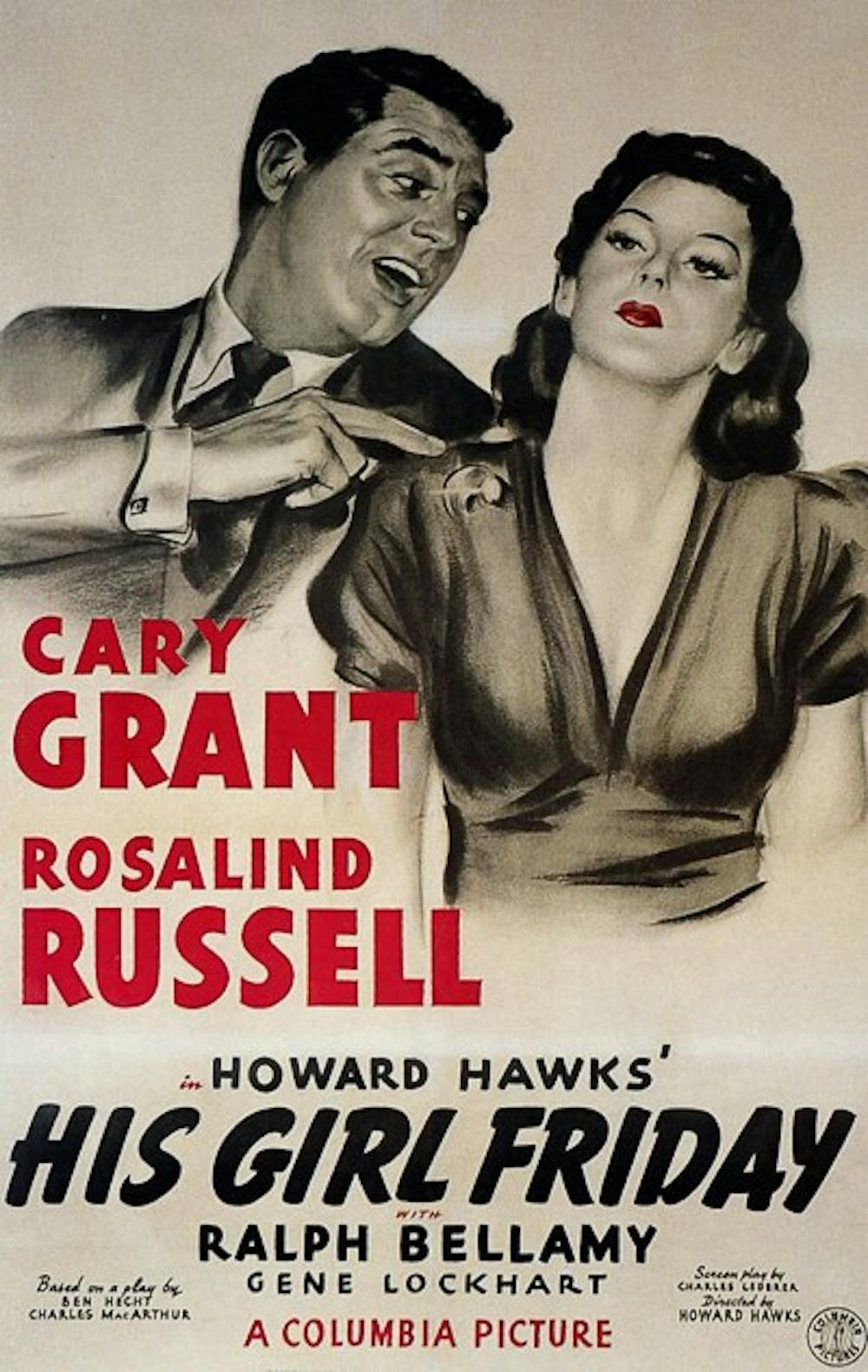
As midterms are causing headaches and Spring Break is fast approaching, I traveled back in time once more with a classic movie. My modern-day troubles were forgotten for an hour and a half of uninterrupted classic cinematic excellence.
“His Girl Friday” was my movie of choice this week, and ironically enough, it ended up being a picture with a heavy journalistic storyline. It seems like I can hardly escape my major of choice. All that aside, “His Girl Friday” was a joy to see.
The main character, Hildy Johnson, played by Rosalind Russell was recently was listed in “9 Surprisingly Feminist Classic Films, Because Strong Women Have Always Existed” by the Huffington Post. This was a title I was elated to see given to this classic picture.
Watching Hildy display her quick wit and strength throughout the entire picture was a delight, and quite honestly, a surprise to see in a movie produced in 1940.
In the first few moments of this movie, you can instantly see Hildy’s strong personality, and it is anything but submissive.
The storyline follows Hildy’s ex-husband, Walter, a fast-paced and charming newspaper editor who tries to win her back.
Hildy is currently engaged to a sweet, yet slightly boring insurance salesman, Bruce, who is nothing like her past husband.
During Hildy and Walter’s marriage, she worked at the paper where Walter is the editor, and she is one of his best reporters.
When Hildy comes into the office to visit Walter and tell him that she's getting married the next day, Walter dangles a groundbreaking story in front of her in hopes of bringing her back into the paper and eventually back into his arms.
This movie personified gender roles in 1940s America by providing Hildy with two vastly different men to choose from, and frankly, two vastly different lifestyles.
With Walter, she was a fast-paced reporter, and he praises her on her reporting, evidently viewing her as an equal.
Bruce, although sweet, is a choice who will bring her out of the city to Albany, where her occupation will be a mother and a wife.
Early in the movie, you learn that Hildy divorced Walter because he couldn’t give her the life she wanted with his demanding occupation.
Through the course of the film, you see Hildy’s strength displayed in her hilarious dialogue, and her ability to walk into a newsroom full of men and demand respect, which is instantly given.
By the end of the movie, the audience, as well as Hildy herself, realizes she is actually destined to be a career woman.
It was interesting to see Hildy’s self-discovery, and for me this subtle storyline is what made the film. During the 1940s, women were conditioned to believe motherhood and marriage was the sole suitable lifestyle, as shown in Hildy’s abandonment of her career.
At the end of the picture, you see her return to her reporting job and her equal marriage, evidently dismissing society's oppressions.
This classic movie was a unique insight into the culture of the 1940s and reminded me that there was once a time where being a career woman and mother was a foreign concept.
The subtle portrayal of female empowerment played by the strong actress Rosalind Russell is what made this film a classic. It should be viewed for years to come.
Are you a huge fan of the strong-willed Hildy? Tell the reporter at dpharias@asu.edu or follow @dpharias on Twitter.
Like The State Press on Facebook and follow @statepress on Twitter.





